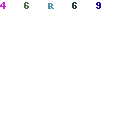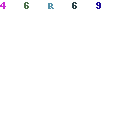Romero appointed to CCAS committee, to present at November panel
There is much discussion in today’s job economy about the value of education, in particular, a liberal arts education. While liberal arts detractors are trying to convince the world that there is no value to a liberal arts education, there is a council that is arguing the opposite just as hard along with a member of SIUE administration on board: The Council of Colleges of Arts and Sciences (CCAS).
According to the CCAS website, their mission is “to provide its member institutions through their appropriate representatives: (1) a forum for discussing common problems of higher education as these relate to the Arts and Sciences; (2) an agency to encourage, initiate, and support programs and activities to improve the intellectual stature and the public understanding of the disciplines of the Arts and Sciences; and (3) a medium for the dissemination of the results of Council deliberations and other information deemed essential to the continuing intellectual and educational strength of the Arts and Sciences.”
Aldemaro Romero, SIUE’s dean of the College of Arts and Sciences (CAS) was recently appointed to a standing committee on Liberal Arts Institutions. At the 2012 annual CCAS meeting, Romero will chair a session about the importance of communicating the value of liberal arts, both internally and externally.
“In the next meeting that’s going take place in November in Seattle, I will be chairing a session that I suggested about the importance of communicating to both internal and external audiences the value of liberal arts” said Romero. “The point that myself and other colleagues are going to make is that liberal arts provides people with the ability to understand issues, see them from different perspectives, and the ability to work with others to solve those larger issues. It’s basically about being a problem solver and understanding how the world works.”
Romero stated that the method of education has changed from one of memorization to experiential learning. Experiential education or hands-on learning is the direction Romero would like to see CAS go.
“I think the time when people were asked to memorize everything is gone. Basically people studied for the test and when the test is over, there is little one can remember. However, what you experience through hands-on experiences, through visits to different places, through international experiences, those sort of things are the things that stay with you because you have lived there. And there is a difference between living something and memorizing something. And we are moving more and more in the direction to bring more of these opportunities to our students.”

Aldemaro Romero, right, interviews Elza Ibroscheva, associate professor of mass communications, for an episode of Segue. photo courtesy of Susanna Lu.
Ensuring that people understand that shift in the education model is important. Romero stated that The conversation must begin at zero to prevent assumptions that everyone understands what is meant by liberal arts education. Getting the conversation back to a good starting point is essential, according to Romero. Under the direction of Romero, CAS began the process of articulating that message with “Segue”, “College Talk”, and “This Week In CAS,” with plans for expanding. Romero will draw on these programs during the discussion. He stated that each participating institution will have its own set of experiences to add to the conversation.
“We need to begin by recognizing that because we know–or we think we know–what liberal arts is and why it is important doesn’t mean that other people know it. So we need to begin from point zero in that regard,” said Romero. “Once we understand that, then next step is to articulate the message. What’s the kind of message we want to send to people who are not involved in the liberal arts? And then the third step is how are we going to convey that message. Whether it is through publications, through social media, through videos, through radio shows, through the type of things we have been doing with This Week In CAS, that’s basically the kinds of things we are going to talk about.”
Filed Under: General CAS Stories













